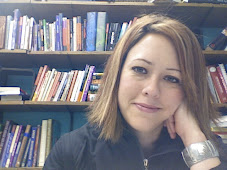Okay, here goes:
1. Make fewer resolutions; instead, tell people that, against all odds and with the help of last year's resolutions, I have crafted myself into the most perfect human specimen ever to grace the planet. And, also, that I have finally memorized the Bible.
2. Convince Nathan that Epcot Center does NOT count as traveling the world.
3. Always bet on Red 23 (Thanks, Cole!)
4. Learn to love the smell of dead crickets and freshmen body odor.
5. Begrudgingly agree to George Eads' restraining order.
6. Stop smelling my right hand and/or blogging about it.
7. Never use inspirational quotes. If quote is in stanza form, okay. Rhyming poems need not apply.
8. Start heavily drinking, smoking and get more tattoos.
9. Open tiny shop where I cut hair as well as selling button necklaces and the "perfect" grilled cheese sandwich.
10. Smile more.
What are you planning on doing differently in 2008? Only joke comments, please... Nobody wants to hear about your new diet/exercise/goodwill/"finding joy in the small things" garbage.
Here are some pictures from our crappy disposable camera to bring you tidings of comfort and joy.
The Weed "twins" who look nothing alike:
 We like to pose by outdated modes of transportation used in the wild west.
We like to pose by outdated modes of transportation used in the wild west. Yes... another stagecoach.
Yes... another stagecoach. Er... Paige and Philip, getting crazy.
Er... Paige and Philip, getting crazy.
Does anyone else wonder where my feet have gone?
 My nephew Benjamin, whose smile makes me smile.
My nephew Benjamin, whose smile makes me smile.
 This is my friend Hope, who successfully ordered a drink that is like hot chocolate, but only with vanilla.
This is my friend Hope, who successfully ordered a drink that is like hot chocolate, but only with vanilla.


